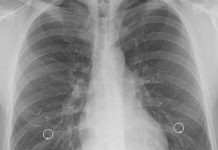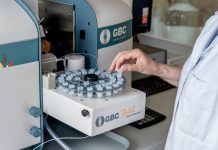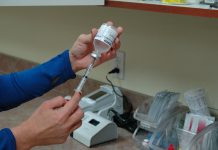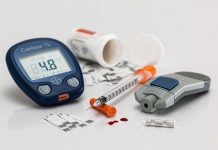Young adults at greater risk of developing infectious tuberculosis
A total of 1.8 million young people between the ages of ten and 24 are estimated to develop tuberculosis (TB) every year, with 20...
Alcohol use disorders are biggest risk factor for dementia
A new nationwide observational study has found that alcohol use disorders are the biggest risk factors for all types of dementia, especially early-onset dementia.
The...
EU-supported wearable laser cures chronic skin conditions
EU-funded scientists have developed a wearable laser that will blast the skin with light and treat chronic skin conditions such as acne, actinic keratosis...
CRUK announces £45m investment in cancer clinical trials
Cancer Research UK is to invest £45m (~€50.8m) into its network of cancer clinical trials units (CTUs) across the UK, one of the charity’s...
Discovering autism in children using blood and urine tests
Researchers at the University of Warwick, UK, have developed new tests to help indicate autism in children which monitors changes in the blood and...
Newcastle Initiative on Changing Age
Newcastle University began research into ageing with pioneering work on dementia in the 1960s and 1970s.
The university was one of the first to recognise...
Malaria research method sees patients deliberately infected with parasite
To aid malaria research, a new process from the University of Tubingen, Germany, has been tested whereby individuals are infected with malaria to help...
Failing to recognise own memory problems is a predictor of Alzheimer’s
A team of researchers at McGill University, Canada, have confirmed that people susceptible to dementia who are unable to recognise their memory problems are...
Strong link to cancer and ultra-processed foods
New research from the Universite Sorbonne Paris Cite, France, suggests there is a substantial link between the consumption of ultra-processed foods and risk of...
Short children have higher risk of having strokes
New Danish research has found a link between shorter children and an increased risk of having a cerebrovascular accident later in adult life.
The study...
Playing video games can improve motility after a cerebral infarction
New research reveals that motility issues following a cerebral infarction can be improved by a type of cognitive training which includes video games.
The study,...
CureVac’s influenza and malaria vaccines receive further funding
German-based biopharmaceutical company CureVac has been awarded two new grants from the Bill & Melinda Gates Foundation to continue helping develop influenza and malaria...
Sibling bullying severely increases risk of psychotic disorders
New research from the University of Warwick, UK, has found that victims of sibling bullying in childhood are three times more likely to develop...
Memory loss provides potential early Alzheimer’s identifier
A new cognitive test has been developed by the University of Exeter and University College London, UK, that helps detect subtle memory loss years...
‘Smart’ glucagon delivery system reduces post-bariatric hypoglycaemia
A new smart glucagon delivery system has been created so that people with post-bariatric hypoglycaemia are able to live without dangerous complications.
The new glucagon...
Fertility treatments could be improved after human eggs grown in lab
Scientists at Edinburgh University, UK, have fully grown egg cells in a laboratory, and there is now hope that this could lead to improved...
New vaccine which eliminates tumours to start human clinical trial
A new injection that successfully eliminated tumours in mice is to begin its human clinical trial and be tested on lymphoma patients.
The study from...
World Cancer Day: new website launches to aid geographical research
To contribute to the prevention, early detection, and adequate treatment of cancer, the European Cancer Information System (ECIS) website launched on World Cancer Day...
Is low muscle strength a key to identifying early onset ALS?
A study from the University of Gothenburg, Sweden, has identified low muscle strength during later teen years as a risk factor for the neurological...
Can blood tests find Alzheimer’s proteins?
Scientists have developed blood tests that can detect the build-up of toxic proteins linked to Alzheimer’s disease. The work published in the journal Nature...

























